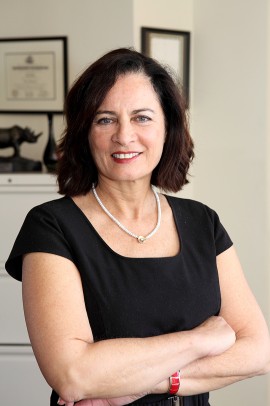UIC receives grant to create post-secondary education program for people with intellectual disabilities
Educators at the University of Illinois Chicago will receive a $2.5 million grant to develop a program that will prepare individuals with intellectual disabilities for competitive employment.

Photo: Jenny Fontaine/UIC
The grant to the UIC Department of Disability and Human Development comes from the U.S. Department of Education to develop a “Model Comprehensive Transition and Post-Secondary Program for Students with Intellectual Disabilities.” The UIC Certificate in Co-Operative Career Experience will set up a model postsecondary education certificate program to better prepare students with intellectual disabilities for integrated and competitive jobs in their own interest areas.
“So many students with intellectual disabilities get dropped from formal disability services after high school. When they become adults they usually end up not going to college and are often unemployed or underemployed. An important feature of this program is building skills for a career, not a job, but a path for people to see their future,” said project leader Tamar Heller, distinguished professor and head of the UIC Institute on Disability and Human Development. Katherine Caldwell, clinical assistant professor, disability and human development, and Kaitlin Stober, visiting research specialist, are project co-leads.
During the Co-Op students’ two-year program, they will have full, student status at UIC while taking classes about the transition to college, building capacity and skills, and career pathways. Additionally, students can choose a specialty track: arts and culture, policy and social justice, health across the lifespan, entrepreneurship and leadership. They will also audit existing undergraduate classes with other UIC students and complete a capstone experience in their final semester that could lead to post-graduation employment.
“Unlike other programs serving students with intellectual disabilities in college, students in the UIC Co-Op program will be fully integrated with other undergraduate students. Additionally, UIC students in disability and human development will gain important skills by taking classes alongside peers with intellectual disabilities and by acting as peer mentors for Co-Op students,” Heller said.
The Co-Op students will have formal supports through the program including mentors and peer mentors, a dedicated academic advisor and career coach, and disability accommodations.
Heller points out UIC is uniquely suited for this program because of the existing disability studies degree programs as well as the Disability Resource Center, Disability Cultural Center, the Coalition of Autistic and Neurodiverse Students, and the Great Lakes ADA Center — all of which will provide excellent resources for students in the Co-Op program.
Additionally, students will benefit from existing community partnerships including school districts in the Chicago area, the Chicago Mayor’s Office on Disabilities, the Business Leadership Network, state developmental disabilities and vocational agencies, community agencies, and advocacy organizations. These organizations will also participate in a leadership advisory committee to help guide program development, inform and recruit students, and connect students with career opportunities in the community.
The Co-Op program hopes to enroll 10 students in the first cohort beginning spring of 2022 and plans to open applications during the spring semester. The goal is to expand the program to other sites in Illinois and provide a model for other programs nationally in the coming years. The project is funded for five years.
“There is a great demand for programs that help individuals with intellectual disabilities achieve career success,” Heller said. “Not many people with intellectual disabilities currently have opportunities to participate in an inclusive college experience that is designed to help them on a career trajectory based on their needs and preferences.”
The program is supported by U.S. Department of Education grant P407A200020.
Categories
Research, Students, Top Faculty Staff News, Top Student News
Topics
disabilities studies, intellectual disabilities, Tamar Heller
